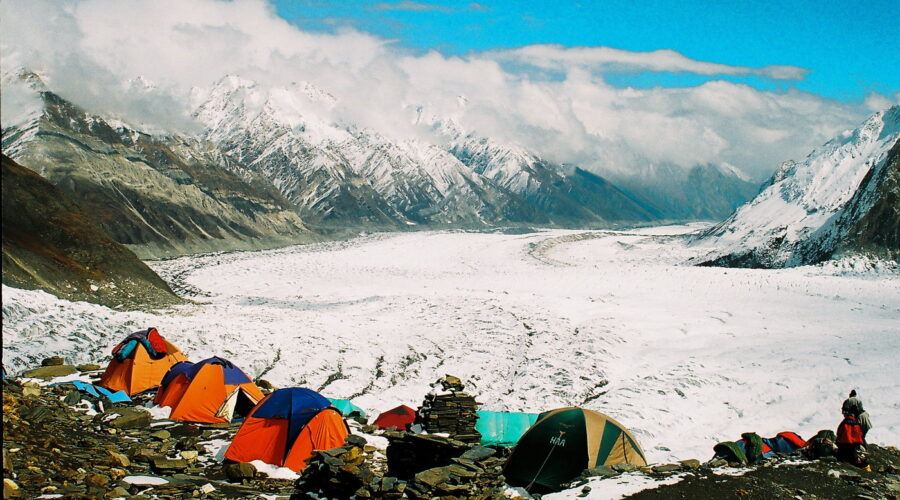Spantik Peak (7027m) is known by various names for its beauty and grandeur. The northwestern face on the Nagar side with its bright red color of the golden pillar is called “Ghenish Chhish”, which in Brushaski (local language) means Golden Mountain.
Ganesh in Broshaski also means Queen. The peak is so majestic and beautiful that the local people call it Queen Mountain. Conway named it Golden Parri, which means Golden Fairy and some call it Pyramid Mountain too. The peak is located in the Rakaposhi and Haramosh massif near Barpu and Garumbar glaciers. The first attempt to climb the peak was made in 1903 AD via the Southeast ridge by Dr. and Mrs. Workman. They ascended up to 330 meters of the summit. The same route was used by five German climbers headed by Kramer when they made the first ascent in 1955. Some teams have used snowshoes to cross the flat and titanic plateau higher up. British climbers Mick Fowler and Victor Saunders climbed the Northwest golden pillar of Spantik in 1987, but they returned via the imminent Southwest spur.
Most recently Spantik Peak (7027m) has been a favorite for climbers to train themselves for higher elevation. Lying to the south of the great Hispar Glacier and standing above upper Chogolungma, Spantik offers a charming climb. The approach path to the beautiful campsites along the Chogolungma Glacier offers vistas of mountain scenery with innumerable high peaks. The climb along the Southeast ridge is easily achievable amongst 7000m summits in the Karakorum. The ridge rises 2700m over its 8-km length affording several safe campsites. It is a straight ascent with a gradient of 30º to 45º with a mixture of some hard and easy patches. The Southwest route also goes along a snow ridge of moderate angularity. The summit on clear days presents grand views of neighboring Rakaposhi, Diran, Malubiting, Ultras, Battura Group, Haramosh, the entire Shimshal Mountains, and K2 far beyond, and many more. The scene is absolutely breathtaking.
Although technically easy Spantik is for mountaineers who have the experience of climbing as independent roped parties on snow and glaciers and at least have been on some smaller peaks of AD level. High altitude experience and an exorbitant physical condition, as well as regular practice, are needed to be on this expedition.
+92-3474598096
info@rockvalleytours.com
+92-3474598096
info@rockvalleytours.com

